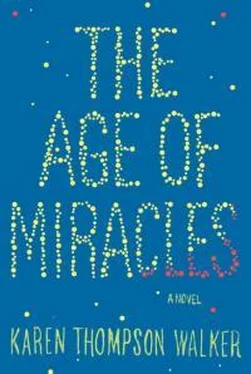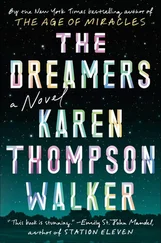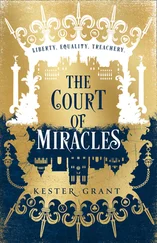Q. The details of how such a slowing would affect us and our environment are rendered quite realistically. How did you get these details right?
A.No one knows exactly what would happen if the rotation of the earth slowed the way it does in my book, so I had some freedom. I did some research at the outset, but I came across many of my favorite details accidentally. Whenever I read an article that contained a potentially relevant detail—anything from sleep disorders, to new technologies for growing plants in greenhouses, to the various ways people and governments reacted to the financial crisis—I would knit it into the fabric of the book. After I finished the book, I had an astrophysicist read it for scientific accuracy, which was an extremely nerve-racking experience. I was relieved by how many of my details he found plausible, but made some adjustments based on what he said.
In general, I wanted my book to seem as real as possible. I recently read a Guardian interview with the Portuguese writer José Saramago, who said that his books were about “the possibility of the impossible.” He explained that even if the premise of a book seemed “impossible,” it was important to him that the development of that premise be logical and rational. That’s exactly the way I wanted The Age of Miracles to function.
Q. Like Julia, you grew up in Southern California, where natural disasters are always looming. Do you think this influenced you in writing of The Age of Miracles ?
A.I grew up in San Diego on a cul-de-sac of tract houses much like the one where The Age of Miracles takes place. In most ways, California was a very pleasant place to grow up. But it could also be a little scary. I remember how the sky would sometimes fill with smoke during fire season, how the smoke hung in the air for days at a time, burning our throats and turning everything slightly orange. I remember the way the windows rattled at the start of every earthquake, and the way the chandelier above our dinner table would swing back and forth until the shaking stopped. I sometimes couldn’t sleep at night, worried that an earthquake or a fire would strike at night. But when I think of those years now, I realize that my novel grew partly out of my lifelong habit of imagining disaster.
If I’ve given the impression that I was constantly afraid as a child, that’s not right. In fact, one of the things I remember most vividly about living in California is the way we mostly ignored the possibility of danger. We always knew that the “big one"—the giant earthquake that scientists believe will one day hit the region—could strike at any time, but mostly we lived as if it never would. Life often felt idyllic: We played soccer, we went swimming, we went walking on the beach. A little bit of denial is part of what it means to live in California. Then again, maybe that’s also just part of being alive. I really wanted to capture that feeling in The Age of Miracles .
Praise for The Age of Miracles
“[A] moving tale that mixes the real and surreal, the ordinary and the extraordinary with impressive fluency and flair… Ms. Walker has an instinctive feel for narrative architecture, creating a story, in lapidary prose, that moves ahead with a sense of both the inevitable and the unexpected… Ms. Walker maps [her characters’] inner lives with such sure-footedness that they become as recognizable to us as people we’ve grown up with or watched for years on television… [A] precocious debut… one of this summer’s hot literary reads.”
—Michiko Kakutani,
The New York Times
“THE NEXT BIG FEMALE NOVELIST.”
—
Rolling Stone
“THE SUMMER BOOK.”
—Vanity Fair.com
“[AN] EARTHSHAKING DEBUT.”
—
Entertainment Weekly
“Part speculative fiction, part coming-of-age story… The Age of Miracles could turn Walker into American literature’s next big thing.”
—NPR
“A tender coming-of-age novel.”
—Maureen Dowd,
The New York Times
“Walker creates lovely, low-key scenes to dramatize her premise… The spirit of Ray Bradbury hovers in the mixture of the portentous and quotidian.”
—
The New Yorker
“[Walker] matches the fierce creativity of her imagination with a lyrical and portentous understanding of the present.”
—
People (4 stars)
“This haunting and soul-stirring novel about the apocalypse is transformative and unforgettable.”
—Marie Claire
“Quietly explosive… Walker describes global shifts with a sense of utter realism, but she treats Julia’s personal adolescent upheaval with equal care, delicacy, and poignancy.”
—
O, The Oprah Magazine
“Haunting.”
—
Real Simple
“If you begin this book, you’ll be loath to set it down until you’ve reached its end… The Age of Miracles reminds us that we never know when everything will change, when a single event will split our understanding of personal history and all history into a Before and an After.”
—
The San Francisco Chronicle
“The perfect combination of the intimate and the pandemic… Flawlessly written; it could be the most assured debut by an American writer since Jennifer Egan’s ‘Emerald City.’”
—
Denver Post
“Touching, observant and poetic.”
—
The Columbus Dispatch
“Simply told, skillfully crafted and filled with metaphorical unities, this resonant first novel [rings] with difficult truths both large and small.”
—
Kansas City Star
“The Age of Miracles lingers, like a faded photo of a happy time. It is stunning.”
—
Cleveland Plain Dealer
“Both utterly realistic and fantastically dystopian… The big miracles, Walker seems to be saying, may doom the world at large, but the little ones keep life worth living.”
—
Minnesota Herald Tribune
“[An] elegiac, moving first novel.”
—
Newsday
“Arresting… This book cuts bone-deep.”
—
Austin Chronicle
“Evocative and poetic… I loved this book from the first page.”
—
Huntington News
“Walker’s tone can be properly [Harper] Lee-esque; both Julia and Scout grapple with the standard childhood difficulties as their societies crumble around them. But life prevails, and the stunning Miracles subtly conveys that adapting.”
—
Time Out New York
“[A] gripping debut… Thompson’s Julia is the perfect narrator…. While the apocalypse looms large—has in fact already arrived—the narrative remains fiercely grounded in the surreal and horrifying day-to-day and the personal decisions that persist even though no one knows what to do. A triumph of vision, language, and terrifying momentum, the story also feels eerily plausible, as if the problems we’ve been worrying about all along pale in comparison to what might actually bring our end.”
—
Publishers Weekly (starred review)
“In Walker’s stunning debut, a young California girl coming of age in a dystopian near future confronts the inevitability of change on the most personal level as life on earth withers… She goes through the trials and joys of first love. She begins to see cracks in her parents’ marriage and must navigate the currents of loyalty and moral uncertainty. She faces sickness and death of loved ones. … Julia’s life is shaped by what happens in the larger world, but it is the only life she knows, and Walker captures each moment, intimate and universal, with magical precision. Riveting, heartbreaking, profoundly moving.”
—
Kirkus Reviews (starred review)
“What a remarkable and beautifully wrought novel. In its depiction of a world at once utterly like and unlike our own, The Age of Miracles is so convincingly unsettling that it just might make you stockpile emergency supplies of batteries and bottled water. It also—thank goodness—provides great solace with its wisdom, its compassion, and the elegance of its storytelling.”
Читать дальше












